- Home
- Wilkie Collins
The Black Robe Page 3
The Black Robe Read online
Page 3
I had received letters at Boulogne, which informed me that my wife and family had accepted an invitation to stay with some friends at the sea–side. Under these circumstances I was entirely at his service. Having quieted his anxiety on this point, I reminded him of what had passed between us on board the steamboat. He tried to change the subject. My curiosity was too strongly aroused to permit this; I persisted in helping his memory.
"We were looking into the engine–room," I said; "and you asked me what I heard there. You promised to tell me what you heard, as soon as we got on shore—"
He stopped me, before I could say more.
"I begin to think it was a delusion," he answered. "You ought not to interpret too literally what a person in my dreadful situation may say. The stain of another man's blood is on me—"
I interrupted him in my turn. "I refuse to hear you speak of yourself in that way," I said. "You are no more responsible for the Frenchman's death than if you had been driving, and had accidentally run over him in the street. I am not the right companion for a man who talks as you do. The proper person to be with you is a doctor." I really felt irritated with him—and I saw no reason for concealing it.
Another man, in his place, might have been offended with me. There was a native sweetness in Romayne's disposition, which asserted itself even in his worst moments of nervous irritability. He took my hand.
"Don't be hard on me," he pleaded. "I will try to think of it as you do. Make some little concession on your side. I want to see how I get through the night. We will return to what I said to you on board the steamboat to–morrow morning. Is it agreed?"
It was agreed, of course. There was a door of communication between our bedrooms. At his suggestion it was left open. "If I find I can't sleep," he explained, "I want to feel assured that you can hear me if I call to you."
Three times in the night I woke, and, seeing the light burning in his room, looked in at him. He always carried some of his books with him when he traveled. On each occasion when I entered the room, he was reading quietly. "I suppose I forestalled my night's sleep on the railway," he said. "It doesn't matter; I am content. Something that I was afraid of has not happened. I am used to wakeful nights. Go back to bed, and don't be uneasy about me."
The next morning the deferred explanation was put off again.
"Do you mind waiting a little longer?" he asked.
"Not if you particularly wish it."
"Will you do me another favor? You know that I don't like London. The noise in the streets is distracting. Besides, I may tell you I have a sort of distrust of noise, since—" He stopped, with an appearance of confusion.
"Since I found you looking into the engine–room?" I asked.
"Yes. I don't feel inclined to trust the chances of another night in London. I want to try the effect of perfect quiet. Do you mind going back with me to Vange? Dull as the place is, you can amuse yourself. There is good shooting, as you know."
In an hour more we had left London.
VII.
VANGE ABBEY is, I suppose, the most solitary country house in England. If Romayne wanted quiet, it was exactly the place for him.
On the rising ground of one of the wildest moors in the North Riding of Yorkshire, the ruins of the old monastery are visible from all points of the compass. There are traditions of thriving villages clustering about the Abbey, in the days of the monks, and of hostleries devoted to the reception of pilgrims from every part of the Christian world. Not a vestige of these buildings is left. They were deserted by the pious inhabitants, it is said, at the time when Henry the Eighth suppressed the monasteries, and gave the Abbey and the broad lands of Vange to his faithful friend and courtier, Sir Miles Romayne. In the next generation, the son and heir of Sir Miles built the dwelling–house, helping himself liberally from the solid stone walls of the monastery. With some unimportant alterations and repairs, the house stands, defying time and weather, to the present day.
At the last station on the railway the horses were waiting for us. It was a lovely moonlight night, and we shortened the distance considerably by taking the bridle path over the moor. Between nine and ten o'clock we reached the Abbey.
Years had passed since I had last been Romayne's guest. Nothing, out of the house or in the house, seemed to have undergone any change in the interval. Neither the good North–country butler, nor his buxom Scotch wife, skilled in cookery, looked any older: they received me as if I had left them a day or two since, and had come back again to live in Yorkshire. My well–remembered bedroom was waiting for me; and the matchless old Madeira welcomed us when my host and I met in the inner–hall, which was the ordinary dining–room of the Abbey.
As we faced each other at the well–spread table, I began to hope that the familiar influences of his country home were beginning already to breathe their blessed quiet over the disturbed mind of Romayne. In the presence of his faithful old servants, he seemed to be capable of controlling the morbid remorse that oppressed him. He spoke to them composedly and kindly; he was affectionately glad to see his old friend once more in the old house.
When we were near the end of our meal, something happened that startled me. I had just handed the wine to Romayne, and he had filled his glass—when he suddenly turned pale, and lifted his head like a man whose attention is unexpectedly roused. No person but ourselves was in the room; I was not speaking to him at the time. He looked round suspiciously at the door behind him, leading into the library, and rang the old–fashioned handbell which stood by him on the table. The servant was directed to close the door.
"Are you cold?" I asked.
"No." He reconsidered that brief answer, and contradicted himself. "Yes—the library fire has burned low, I suppose."
In my position at the table, I had seen the fire: the grate was heaped with blazing coals and wood. I said nothing. The pale change in his face, and his contradictory reply, roused doubts in me which I had hoped never to feel again.
He pushed away his glass of wine, and still kept his eyes fixed on the closed door. His attitude and expression were plainly suggestive of the act of listening. Listening to what?
After an interval, he abruptly addressed me. "Do you call it a quiet night?" he said.
"As quiet as quiet can be," I replied. "The wind has dropped—and even the fire doesn't crackle. Perfect stillness indoors and out."
"Out?" he repeated. For a moment he looked at me intently, as if I had started some new idea in his mind. I asked as lightly as I could if I had said anything to surprise him. Instead of answering me, he sprang to his feet with a cry of terror, and left the room.
I hardly knew what to do. It was impossible, unless he returned immediately to let this extraordinary proceeding pass without notice. After waiting for a few minutes I rang the bell.
The old butler came in. He looked in blank amazement at the empty chair. "Where's the master?" he asked.
I could only answer that he had left the table suddenly, without a word of explanation. "He may perhaps be ill," I added. "As his old servant, you can do no harm if you go and look for him. Say that I am waiting here, if he wants me."
The minutes passed slowly and more slowly. I was left alone for so long a time that I began to feel seriously uneasy. My hand was on the bell again, when there was a knock at the door. I had expected to see the butler. It was the groom who entered the room.
"Garthwaite can't come down to you, sir," said the man. "He asks, if you will please go up to the master on the Belvidere."
The house—extending round three sides of a square—was only two stories high. The flat roof, accessible through a species of hatchway, and still surrounded by its sturdy stone parapet, was called "The Belvidere," in reference as usual to the fine view which it commanded. Fearing I knew not what, I mounted the ladder which led to the roof. Romayne received me with a harsh outburst of laughter—that saddest false laughter which is true trouble in disguise.
"Here's something to amuse you!" he cried. "I believe old Garthwaite thinks I am drunk—he won't leave me up here by myself."
Letting this strange assertion remain unanswered, the butler withdrew. As he passed me on his way to the ladder, he whispered: "Be careful of the master! I tell you, sir, he has a bee in his bonnet this night."
Although not of the north country myself, I knew the meaning of the phrase. Garthwaite suspected that the master was nothing less than mad!
Romayne took my arm when we were alone—we walked slowly from end to end of the Belvidere. The moon was, by this time, low in the heavens; but her mild mysterious light still streamed over the roof of the house and the high heathy ground round it. I looked attentively at Romayne. He was deadly pale; his hand shook as it rested on my arm—and that was all. Neither in look nor manner did he betray the faintest sign of mental derangement. He had perhaps needlessly alarmed the faithful old servant by something that he had said or done. I determined to clear up that doubt immediately.
"You left the table very suddenly," I said. "Did you feel ill?"
"Not ill," he replied. "I was frightened. Look at me—I'm frightened still."
"What do you mean?"
Instead of answering, he repeated the strange question which he had put to me downstairs.
"Do you call it a quiet night?"
Considering the time of year, and the exposed situation of the house, the night was almost preternaturally quiet. Throughout the vast open country all round us, not even a breath of air could be heard. The night–birds were away, or were silent at the time. But one sound was audible, when we stood still and listened—the cool quiet bubble of a little stream, lost to view in the valley–ground to the south.
"I have told you already," I said. "So still a night I never remember on this Yorkshire moor." br />
He laid one hand heavily on my shoulder. "What did the poor boy say of me, whose brother I killed?" he asked. "What words did we hear through the dripping darkness of the mist?"
"I won't encourage you to think of them. I refuse to repeat the words."
He pointed over the northward parapet.
"It doesn't matter whether you accept or refuse," he said, "I hear the boy at this moment—there!"
He repeated the horrid words—marking the pauses in the utterance of them with his finger, as if they were sounds that he heard:
"Assassin! Assassin! where are you?"
"Good God!" I cried. "You don't mean that you really hear the voice?"
"Do you hear what I say? I hear the boy as plainly as you hear me. The voice screams at me through the clear moonlight, as it screamed at me through the sea–fog. Again and again. It's all round the house. That way now, where the light just touches on the tops of the heather. Tell the servants to have the horses ready the first thing in the morning. We leave Vange Abbey to–morrow."
These were wild words. If he had spoken them wildly, I might have shared the butler's conclusion that his mind was deranged. There was no undue vehemence in his voice or his manner. He spoke with a melancholy resignation—he seemed like a prisoner submitting to a sentence that he had deserved. Remembering the cases of men suffering from nervous disease who had been haunted by apparitions, I asked if he saw any imaginary figure under the form of a boy.
"I see nothing," he said; "I only hear. Look yourself. It is in the last degree improbable—but let us make sure that nobody has followed me from Boulogne, and is playing me a trick."
We made the circuit of the Belvidere. On its eastward side the house wall was built against one of the towers of the old Abbey. On the westward side, the ground sloped steeply down to a deep pool or tarn. Northward and southward, there was nothing to be seen but the open moor. Look where I might, with the moonlight to make the view plain to me, the solitude was as void of any living creature as if we had been surrounded by the awful dead world of the moon.
"Was it the boy's voice that you heard on the voyage across the Channel?" I asked.
"Yes, I heard it for the first time—down in the engine–room; rising and falling, rising and falling, like the sound of the engines themselves."
"And when did you hear it again?"
"I feared to hear it in London. It left me, I should have told you, when we stepped ashore out of the steamboat. I was afraid that the noise of the traffic in the streets might bring it back to me. As you know, I passed a quiet night. I had the hope that my imagination had deceived me—that I was the victim of a delusion, as people say. It is no delusion. In the perfect tranquillity of this place the voice has come back to me. While we were at table I heard it again—behind me, in the library. I heard it still, when the door was shut. I ran up here to try if it would follow me into the open air. It has followed me. We may as well go down again into the hall. I know now that there is no escaping from it. My dear old home has become horrible to me. Do you mind returning to London tomorrow?"
What I felt and feared in this miserable state of things matters little. The one chance I could see for Romayne was to obtain the best medical advice. I sincerely encouraged his idea of going back to London the next day.
We had sat together by the hall fire for about ten minutes, when he took out his handkerchief, and wiped away the perspiration from his forehead, drawing a deep breath of relief. "It has gone!" he said faintly.
"When you hear the boy's voice," I asked, "do you hear it continuously?"
"No, at intervals; sometimes longer, sometimes shorter."
"And thus far, it comes to you suddenly, and leaves you suddenly?"
"Yes."
"Do my questions annoy you?"
"I make no complaint," he said sadly. "You can see for yourself—I patiently suffer the punishment that I have deserved."
I contradicted him at once. "It is nothing of the sort! It's a nervous malady, which medical science can control and cure. Wait till we get to London."
This expression of opinion produced no effect on him.
"I have taken the life of a fellow–creature," he said. "I have closed the career of a young man who, but for me, might have lived long and happily and honorably. Say what you may, I am of the race of Cain. He had the mark set on his brow. I have my ordeal. Delude yourself, if you like, with false hopes. I can endure—and hope for nothing. Good–night."
VIII.
EARLY the next morning, the good old butler came to me, in great perturbation, for a word of advice.
"Do come, sir, and look at the master! I can't find it in my heart to wake him."
It was time to wake him, if we were to go to London that day. I went into the bedroom. Although I was no doctor, the restorative importance of that profound and quiet sleep impressed itself on me so strongly, that I took the responsibility of leaving him undisturbed. The event proved that I had acted wisely. He slept until noon. There was no return of "the torment of the voice"—as he called it, poor fellow. We passed a quiet day, excepting one little interruption, which I am warned not to pass over without a word of record in this narrative.
We had returned from a ride. Romayne had gone into the library to read; and I was just leaving the stables, after a look at some recent improvements, when a pony–chaise with a gentleman in it drove up to the door. He asked politely if he might be allowed to see the house. There were some fine pictures at Vange, as well as many interesting relics of antiquity; and the rooms were shown, in Romayne's absence, to the very few travelers who were adventurous enough to cross the heathy desert that surrounded the Abbey. On this occasion, the stranger was informed that Mr. Romayne was at home. He at once apologized—with an appearance of disappointment, however, which induced me to step forward and speak to him.
"Mr. Romayne is not very well," I said; "and I cannot venture to ask you into the house. But you will be welcome, I am sure, to walk round the grounds, and to look at the ruins of the Abbey."
He thanked me, and accepted the invitation. I find no great difficulty in describing him, generally. He was elderly, fat and cheerful; buttoned up in a long black frockcoat, and presenting that closely shaven face and that inveterate expression of watchful humility about the eyes, which we all associate with the reverend personality of a priest.
To my surprise, he seemed, in some degree at least, to know his way about the place. He made straight for the dreary little lake which I have already mentioned, and stood looking at it with an interest which was so incomprehensible to me, that I own I watched him.
He ascended the slope of the moorland, and entered the gate which led to the grounds. All that the gardeners had done to make the place attractive failed to claim his attention. He walked past lawns, shrubs, and flower–beds, and only stopped at an old stone fountain, which tradition declared to have been one of the ornaments of the garden in the time of the monks. Having carefully examined this relic of antiquity, he took a sheet of paper from his pocket, and consulted it attentively. It might have been a plan of the house and grounds, or it might not—I can only report that he took the path which led him, by the shortest way, to the ruined Abbey church.
As he entered the roofless inclosure, he reverently removed his hat. It was impossible for me to follow him any further, without exposing myself to the risk of discovery. I sat down on one of the fallen stones, waiting to see him again. It must have been at least half an hour before he appeared. He thanked me for my kindness, as composedly as if he had quite expected to find me in the place that I occupied.
"I have been deeply interested in all that I have seen," he said. "May I venture to ask, what is perhaps an indiscreet question on the part of a stranger?"
I ventured, on my side, to inquire what the question might be.
"Mr. Romayne is indeed fortunate," he resumed, "in the possession of this beautiful place. He is a young man, I think?"
"Yes."
"Is he married?"
"No."
"Excuse my curiosity. The owner of Vange Abbey is an interesting person to all good antiquaries like myself. Many thanks again. Good–day."

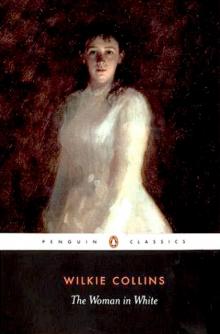 The Woman in White
The Woman in White The Queen of Hearts
The Queen of Hearts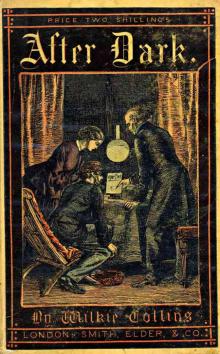 Miss Jeromette and the Clergyman
Miss Jeromette and the Clergyman Man and Wife
Man and Wife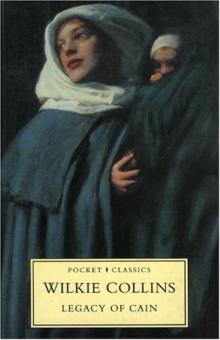 The Legacy of Cain
The Legacy of Cain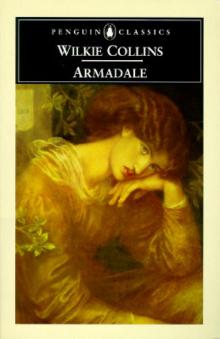 Armadale
Armadale The Frozen Deep
The Frozen Deep John Jago's Ghost or the Dead Alive
John Jago's Ghost or the Dead Alive Poor Miss Finch
Poor Miss Finch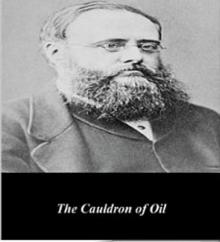 The Cauldron of Oil: A Case Worth Looking At
The Cauldron of Oil: A Case Worth Looking At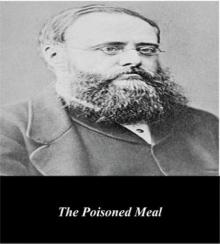 The Poisoned Meal
The Poisoned Meal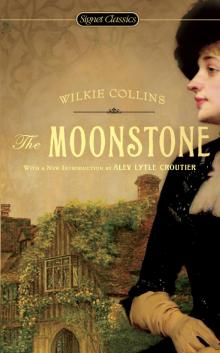 The Moonstone
The Moonstone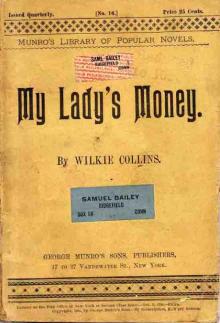 My Lady's Money
My Lady's Money Classic Ghost Stories
Classic Ghost Stories Jezebel's Daughter
Jezebel's Daughter The Devil's Spectacles
The Devil's Spectacles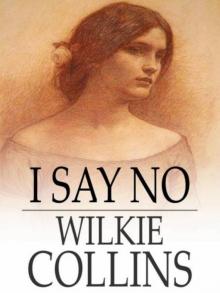 I Say No
I Say No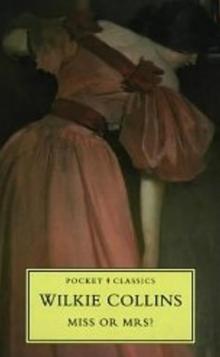 Miss or Mrs.?
Miss or Mrs.?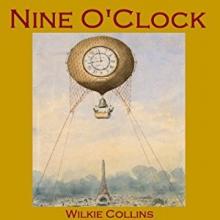 Nine O'Clock
Nine O'Clock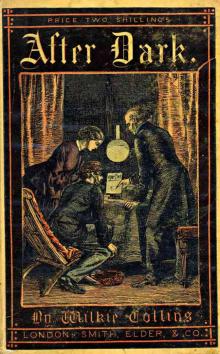 The Lawyer's Story of a Stolen Letter
The Lawyer's Story of a Stolen Letter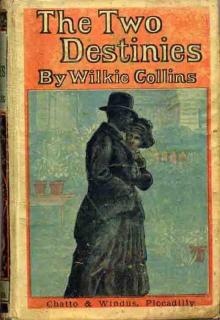 The Two Destinies
The Two Destinies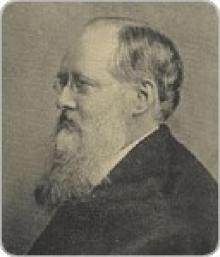 Mr. Percy and the Prophet
Mr. Percy and the Prophet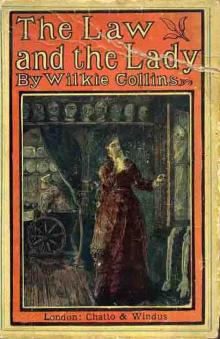 The Law and the Lady
The Law and the Lady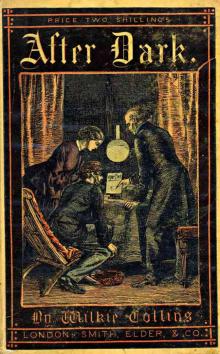 The Nun's Story of Gabriel's Marriage
The Nun's Story of Gabriel's Marriage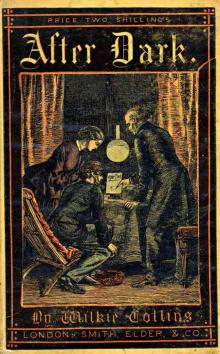 After Dark
After Dark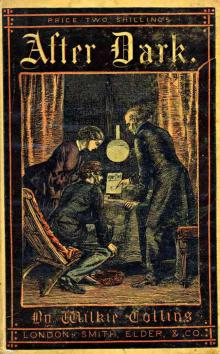 Mr. Captain and the Nymph
Mr. Captain and the Nymph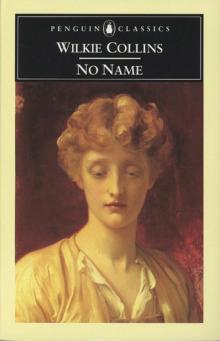 No Name
No Name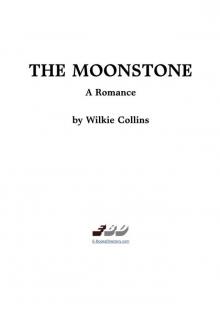 The Moonstone (Penguin Classics)
The Moonstone (Penguin Classics) Antonina
Antonina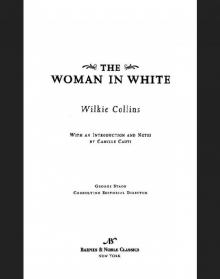 Woman in White (Barnes & Noble Classics Series)
Woman in White (Barnes & Noble Classics Series)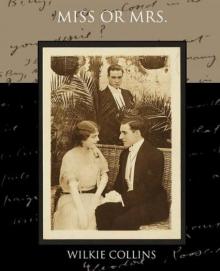 Miss or Mrs
Miss or Mrs The Dead Alive
The Dead Alive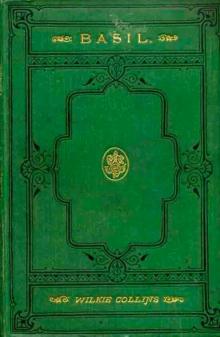 Basil
Basil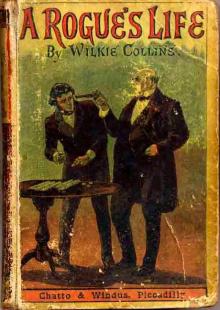 A Rogue's Life
A Rogue's Life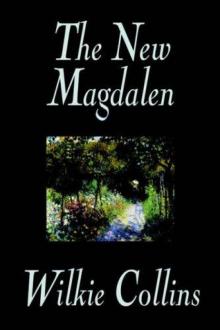 The New Magdalen
The New Magdalen Blind Love
Blind Love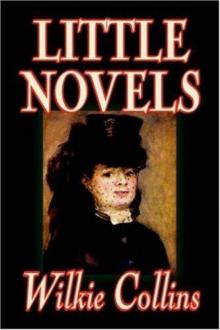 Little Novels
Little Novels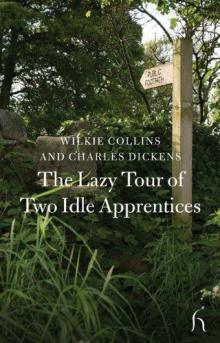 The Lazy Tour of Two Idle Apprentices
The Lazy Tour of Two Idle Apprentices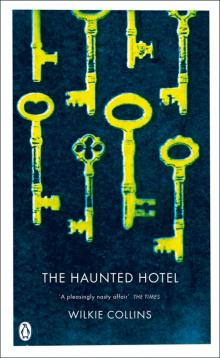 The Haunted Hotel
The Haunted Hotel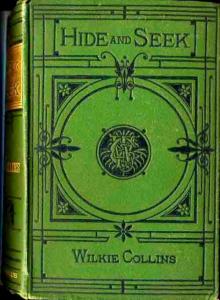 Hide and Seek
Hide and Seek